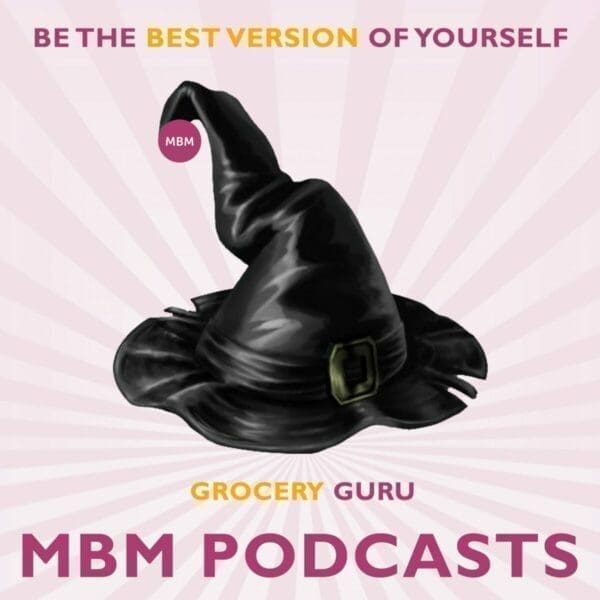Podcast: Play in new window | Download
Grocery Guru Episode #37: Ultra Fast Groceries
Join Andrew Grant and Darren A. Smith in the thirty-seventh episode of the Grocery Guru. They discuss the rise of rapid groceries, also known as ultra fast groceries. These start-ups are being discussed by JP Morgan and Credit Suisse as having the ability to take serious market share in the UK.
You Can Read the Full Ultra Fast Groceries Transcript Below:
Darren A. Smith:
Hello, and welcome to the Grocery Guru. We are episode 37 and we are here with that Grocery Guru, Andrew Grant. How are you?
Andrew Grant:
Very, very warm, Darren.
Darren A. Smith:
Yes. It’s 31 here in town. It’s hot.
Andrew Grant:
Well yeah, the official temperature is 31, but I think in this office, it feels like 40. So yes.
Darren A. Smith:
Now, if I was very smart, I’d make the link between hot weather and ultra-fast groceries, but I’m not that smart. So would you tell us about an ultra-fast grocery?

Andrew Grant:
Well, I think you could say that their share prices are on fire.
Darren A. Smith:
They’re going like hotcakes?
Andrew Grant:
Something like that, yeah. So no, we spoke about it a few weeks ago, didn’t we? This rapid grocer I think is going to be the term that is used. So people like Getir and what have you, where they promise to deliver in 10 minutes. And I think both you and I are a little bit cynical, where to say okay, it’s a nice thing to have and the odd person in a city center might run out of crisps or something, but the reason I’ve brought this back today is J.P. Morgan, the investment house, I read an article last week where they reckon, and the headline of the article was Rapid Grocery Will Create an Existential Threat to Mainstream Grocery. They’re predicting, wait for this, that the rapid delivery grocers could capture 50% of the UK grocery market worth 200 billion a year.
Darren A. Smith:
And for someone like J.P. Morgan to make that forecast, we’re putting a lot of stead by that, and so we should.
Andrew Grant:
Well, I don’t know. It depends how cynical you are. I know both you and I have healthy doses of cynicism running through our veins, but I’ve always thought don’t brokers come up with stories in order to pump up a share price and then come up with another story to deflate the share price that they make money on the up and the down? Isn’t that what they do?
Darren A. Smith:
Well, a bit like Elon Musk with Bitcoin or Dogecoin.
Andrew Grant:
Yeah. So whether it’s one of these things, let’s just pump the hype so that we can make even more money out of the shares that we’ve hedged, or leveraged, or whatever they do. But they were reckoning, and this is the bit that got me is whether you believe they’ll get 50% of the market or not, but they’re [inaudible 00:02:39] these startups, this says why so much money is going into them and why the share prices have gone crazy is they’re making net returns of 10 to 15%. Now, we’ve spoken on here many times about UK grocers being the most profitable in the world, but they still only make about two and a half P net profit in the pound, which is a lot of hard time, effort, and energy for two and a half P for every pound you sell. They reckon these guys, because they’re operating out of dark warehouses on industrialist estates and under railway arches, they’re using transient labor, are getting 10 to 15% returns. Now, just do the maths, Tesco worth what? 80 billion, 100 billion, making 4%. If these guys suddenly carve out 200 billion making 12%, whoa.
Darren A. Smith:
That is staggering. Now, on top of what you said, so one of these guys is Gorilla.
Andrew Grant:
Yeah.
Darren A. Smith:
Gorillas, excuse me. Gorillas. And I had a look, and these guys are already in … Don’t know if you’re able to see that, but this many countries. So we’re not just talking about a UK phenomenon here, we’re talking about eight European countries that they’re already in. And Gorillas are saying one, thousands of products all at retail prices, so they’re not charging more, two, everything at your fingertips, it’s an app, and three, within 10 minutes, delivered by our legendary rider crew.
Andrew Grant:
Yeah. So is it a classic story of tech bubble stocks or could it happen? I mean I don’t know. The other thing that made me giggle a little bit is obviously this is quite low tech and the startup costs are very, very low, so the input capital’s low. Don’t know if you saw over the weekend, Ocado had a little problem with six of their robots getting into a fight.
Darren A. Smith:
Yes, they had a fire, didn’t they?
Andrew Grant:
Yeah, six of their robots decided to beat each other up and set themselves on fire, which I just thought was brilliant.
Darren A. Smith:
Robot wars. Now, let me share some of the facts [crosstalk 00:05:00].
Andrew Grant:
Clearly they were England fans.
Darren A. Smith:
We’ve got the guys Getir, we’ve got the Gorillas guys, we’ve got Weezy, and these guys are saying the nationwide rollout, for instance, seeing a potential for 5,000 warehouses in the UK alone, which compares to Tesco and Sainsbury’s, with only 2,000 convenience stores. That’s pretty staggering stuff. These guys are going to move into this very, very quickly.
Andrew Grant:
And I think one of the interesting things, if you think back to what we spoke about last week with HFSS and impulse foods being slowly strangled out of grocery, what if these guys somehow found a way around the rules? Because they’re not chain players at the moment, the legislation’s not written for them because they’re well under the radar. What if all of a sudden you are PepsiCo, Mars, Coca-Cola, suddenly finding that your sales are literally drying up in the grocers and there’s this whole new channel that literally the words impulse, you don’t get much more impulse than 10 minutes.
Darren A. Smith:
And these guys, because of their size, they might go under the [GSCOP 00:06:27] radar, they’ll go under the HFSS. So just for everyone else, that’s high fat, high salt, high sugar foods. We’ve got legislation which is coming in about April next year which says that you cannot volume promote those products, so that’s ice cream, confectionary, and also you can’t secondary display them. Now, these guys, as you say, could get around all of that with their app, maybe.
Andrew Grant:
Well, the proposal, although they’re online players and the proposed legislation is going to cover online, it only covers people operating in stores of two and a half thousand square foot and above. These guys are running railway arches and don’t have retail space.
Darren A. Smith:
Maybe it’s the smartest move.
Andrew Grant:
Yeah. And then the other thing as well, again, I love the stats, Just Eat, I think it was, has the highest returning rate of any of the delivery apps. 76% of their customers are returning customers. Just imagine when somebody like Getir or Gorillas, whatever, efficiently partner up with a Deliveroo or a Just Eat. So within 10 minutes, you get your hot tasty takeaway dinner, your bottle of pop, your chocolates for afterwards, your cigarettes, your beer, whatever it might be, all delivered on the back of one rickety motorbike.
Darren A. Smith:
Wow.
Andrew Grant:
Do you ever need to go to Tesco again?
Darren A. Smith:
So what’s our advice for everyone watching? If they’re putting some shares up, maybe we ought to get some, you just got to pick which one.
Andrew Grant:
Well, I think for our audience, mainly account managers and brands that sell into grocery, I think you need to watch it really closely. I don’t think it is a tech bubble anymore, it’s something that if you don’t keep an eye on, you could wake up in 18 months time and it’s a mega, mega, mega new channel.
Darren A. Smith:
It could be, and maybe that’s why J.P. Morgan’s ears are pricking up, and Credit Suisse are having a look at them, and so on, as this report says. Wow. So we’re talking about ultra-fast grocery or ultra-rapid groceries, as it’s becoming known, a whole new market opening up. The growth is absolutely going exponentially through the roof. Now, just the last part, Justin King’s involved in Weezy, is that right?
Andrew Grant:
You’ve got me there. He’s involved in one of them, he’s put money into, yeah.
Darren A. Smith:
Involved in one of them, okay. So they’re buying in huge experience as well. Justin being ex-CEO of Sainsbury’s for many years, did very well, and has brought Sainsbury’s back from poor growth to great growth, so he may do the same.
Andrew Grant:
Yeah. So I think the watch word is watch this space.
Darren A. Smith:
Watch this space. Andrew, thank you very much for bringing that to our attention. We’ll let you go and sunbathe in the heat, and we’ll talk to you next week.
Andrew Grant:
Bye-bye.
Darren A. Smith:
Bye.
Take a look at the Football Bonus video on our YouTube Channel. Also, check out our award-winning blog.



